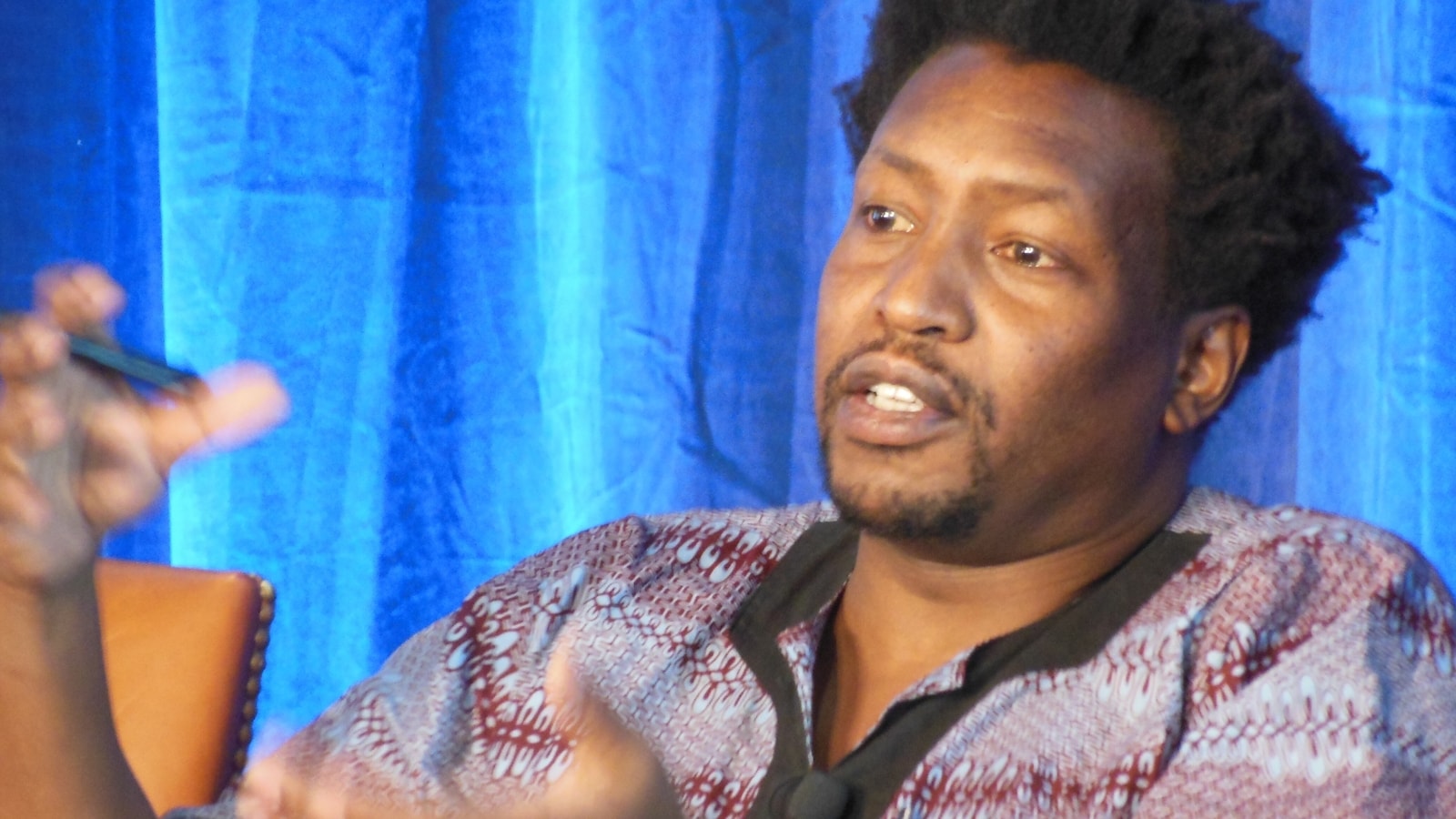
[ad_1]
A week ago, a series of small explosions rocked Kenyan X (or Kenyan Twitter). The first one was set off by Mũkoma wa Ngũgĩ, who is an associate professor of English at Cornell University, and the son of Ngũgĩ wa Thiong’o. Speaking of his father, the Kenyan novelist and playwright, a behemoth of African literature, on March 13, he wrote: “My father [tagging Ngũgĩ wa Thiong’o] physically abused my late mother — he would beat her up. Some of my earliest memories are of me going to visit her at my grandmother’s where she would seek refuge. But with that said it is the silencing of who she was that gets me. Ok — I have said it.”

In a follow-up tweet posted on March 19, he wrote: “One of the lies…is that my mother (Nyambura) was a spy/secret agent for the Kenyatta and Moi dictatorships and led my father being detailed and exiled. This is simply not true.” Those who rushed to Mũkoma’s X account after seeing the first tweet noticed that this is not the first time that he has spoken up for his late mother.
In a tweet dated November 28, 2022, he posted a photograph of his mother and wrote: “It hurts to see my late mother, Nyambura (my daughter is named after her) being systematically erased from the Ngũgĩ wa Thiong’o story. We literally (of course) and figuratively would not be here if it was not for her keeping us glued together through the political persecutions.”
Where and when did this story that Mũkoma writes about, begin?
Birth of a Dream Weaver
His father Ngũgĩ wa Thiong’o was born into a poor peasant family during the British colonial rule of Kenya in 1938; he was one of 24 children, and two of his brothers belonged to the Kenya Land and Freedom Army that waged a war against the British colonisers in what was known as the Mau Mau Rebellion. A gifted writer from his early years, Thiong’o was educated at the famous Alliance High School that was run by the British, before going on to Makerere University College in Kampala, Uganda, where he attended the historic first edition of the African Writers Conference in 1962, an event that would have a lasting impact on him.
Two years later, he won a scholarship to the University of Leeds, but not before publishing his debut novel, Weep Not, Child, the first novel in English by an African writer from East Africa. It was published under his English name, James Ngugi — one he would discard when he decided to write under his birth name, Ngũgĩ wa Thiong’o, and in his native language, Gĩkũyũ.
With every novel and play he published, he spoke truth to power. The imperialist government was replaced in 1964, first by Jomo Kenyatta, the first Prime Minister and the first President of independent Kenya. Daniel arap Moi, the vice president, even famously ordered Thiong’o’s arrest in 1977, after the publication of his play Ngaahika Ndeenda (I Will Marry When I Want). After his release, he secured a position to teach in the UK. Thiong’o taught there in exile before moving to the United States, where he continues to live.
Decolonising the mind
Since 1967, the celebrated novelist has been a staunch critic of African writers who published their work in English. Shunning the language of the British/European coloniser, Thiong’o advocated for telling stories in one’s mother tongue, fighting against what he called “normalised abnormality,” a condition rampant in former nations that had been robbed of their native culture and language. In his 1986 seminal essay, Decolonising the Mind: The Politics of Language in African Literature, he wrote: “Colonialism imposed its control of the social production of wealth through military conquest and subsequent political dictatorship. But its most important area of domination was the mental universe of the colonised, the control, through culture, of how people perceived themselves and their relationship to the world… To control a people’s culture is to control their tools of self-definition in relationship to others.”
Thiong’o outlined the role of language and argued that African writers had been forced to think, read and write in English by the colonialists, and continuing to do so even after independence only kept them in a prolonged state of enslavement. In order to truly exert ownership of one’s stories and histories one would have to tell the tale in the language of the culture they belonged to.
A moment of reckoning
There has been an overwhelming response to Mũkoma’s tweet about his father’s abuse; Kenyans and Africans from other countries are divided in their opinion and hotly debating whose perspective is right. One group of people have hit out at Mũkoma for tarnishing the hard-earned reputation of his ailing father who may not be able to defend himself; another group has acknowledged that while violence against women is common in many African cultures, airing out the family’s dirty laundry so many years after Nyambura’s death in 1995 is rather unnecessary.
A small but growing number of African X users, mainly women, have come forward to thank Mũkoma for his decision to speak up about the abuse his mother suffered. What Thiong’o’s son has done is simply take a leaf out of his father’s book; in Decolonising the Mind, Thiong’o wrote: “Language, any language, has a dual character: it is both a means of communication and a carrier of culture.” And by telling his own story, however unpleasant, Mũkoma has used it to shatter the culture of silence that allows a community to hide its ugly truths in the shadows.
In his politically charged novels, Thiong’o drew our attention to the fact that while the identity of the oppressor may change, the language and the actions of the oppressor do not — they are coated with violence, injustice and erasure. His contribution to post-colonial studies of literature and politics is immense because he showed the mirror to both the colonisers and the colonised, and taught us how to negotiate positions of power within that complicated history.
It is ironic that Mũkoma now has to fight for those very same ideas because he pointed the finger at one of the world’s biggest literary heroes, a man whose bravery has stood the test of time. But what of his cruelty? What of the violence, both physical and symbolic, that Mũkoma has borne witness to? Is that not his story to tell?
In 2018, when the #MeToo movement took the world by storm, lengthy debates and discussions that took place at the time focussed on separating art from the artist; in other words, separating the beauty one has created from the ugliness they have also demonstrated. Which one was worth remembering more? At 86, with his body giving out bit by bit, Thiong’o may earn our sympathy but not at the cost of diminishing his actions, no matter how far in the past they may be. Mũkoma has his own reasons for choosing these last few years of his father’s life to hold him accountable, to fight for his mother’s memory, and to tell his community that the oppressor wields shame like a weapon over the oppressed, no matter the colour of their skin. By telling his story in his own words, regardless of the ostracization and the collective condemnation, Mũkoma has shown us one thing — he is his father’s son.
[ad_2]
Source link








